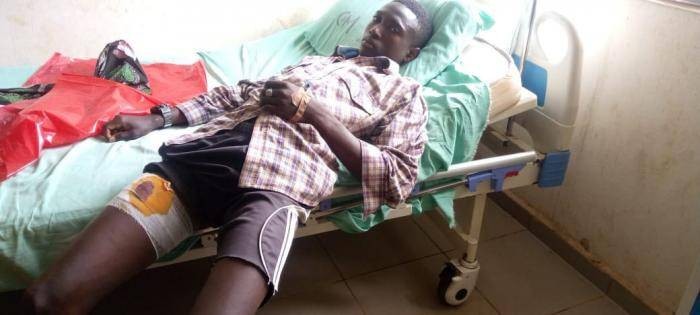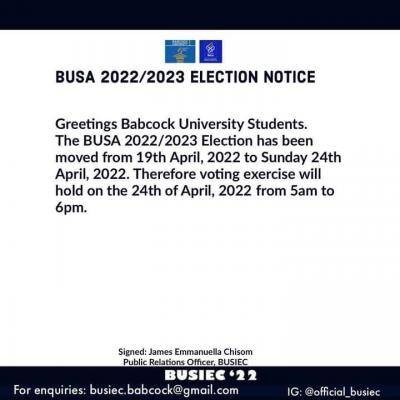
Human rights in Nigeria can be find as the basic rights and privileges of citizens in a country as enshrined in the constitution of the Federal republic of Nigeria. They are rights and freedoms in which every human being is entitled to irrespective of colour, language, race, age, gender or geographic location.
Fundamental Human Rights:
The rights are termed as Fundamental because they are written in the Constitution of Nigeria. Fundamental Human rights include the right to life and liberty, freedom from slavery and torture, freedom of opinion and expression, the right to work and education and others not listed here. Every human being is entitled to these rights, without discrimination of any sort.

When we talk about human rights, there are different types of fundamental human rights in Nigeria which we shall be discussing here in four (4) broad categories today:
Four (4) Major Types of Human Rights in Nigeria
1) SOCIAL AND ECONOMIC RIGHTS
- Right to life
- Right to property and security
- Right to personal liberty
- Right To freedom of association
- Right to private life
- Right to freedom of speech and expression.
- Right against discrimination
- Right to education
2) POLITICAL RIGHTS
- Right to vote and be voted for
- Right to choose political party
- Route to aspire to any public office
- Right to criticize the government constructively
3) LEGAL RIGHTS
- Right to fair hearing in the law courts
- Right to Justice
- Right to personal liberty
- Right to equality before the law
4) CIVIL RIGHTS
- Right To freedom of worship
- Right to choose religion
- Right To freedom of conscience
- Right To freedom of movement
- Rights to work and it worked for.
1) SOCIAL RIGHTS
i) Right to Life: This simply means that every living human has the right to live and no one including the government of the state has the right to unlawfully take the life of another irrespective of the race, age, gender or religious belief of the individual or group living in the state or country.
ii) Right to Property and Security: It is the primary responsibility of the government to safeguard the lives and properties of her citizens. Every citizen has the right to own properties without limits and it is the duty of the government to ensure safety of the properties owned by citizens. It is a different case in Nigeria as the government has failed in the protection of lives and properties as well as provision of security for her citizens.
iii) Right to Freedom: This is a fundamental human right that covers on freedom of speech and expression, assembly, association or union or cooperative societies, movement, and residence. It also includes the right to practice any profession or career without government’s interference.
iv) Right To Freedom of Association: As a citizen, everybody irrespective race, caste, gender, religious beliefs have the right to form an association or or common interest groups without fear or intimidation from the government so long as it does not pose a threat to the existence of life and properties nor infringe on the rights of others.
v) Right to Private Life: This freedom means that you have the right to live your personal life in a private or discreet manner without the interference of the government. Your right to live a private life also covers your right to develop your personal image and to create friendships and other relationships at will which simply means you have the right to participate in multiple socio-economic, and cultural activities.
vi) Right to Freedom of Speech and Expression: Freedom of speech is one of the most important rights every citizen of a nation must exercise. This freedom covers the rights to criticize the government or leaders constructively should they fail in carrying out their primary and secondary duties. However, the government can place a restriction on this freedom in the interests of the sovereignty and unity of the nation, for the security of the nation and for continuous diplomatic harmonization between countries.
vii) Right to Education: This is a fundamental human right every government owes the people of the country. As a citizen of the country, you have the right to be educated. This fundamental human right of every citizen must be enforced by the government. As for the less privilege, the government owe them free education and if such is not exercised, the citizens can exercise their freedom of speech and expression to voice out to the government.
viii) Right Against Discrimination: No citizen should be discriminated against irrespective of the race, religious beliefs, illness, disease or living with disabilities. Such individual being discriminate against can exercise his or her right to sue any person found discriminating against another and the full wrath of the law will be exercised on the offender.
2) POLITICAL RIGHTS
i) Right To Vote and be Voted For: According to the Nigerian constitution, every eligible citizen who have reached the age of 18 years and above have the right to vote and be voted for into any elective position without fear or prejudice. Such rights must be exercised in order to choose democratically, leaders that would fight for the common good of the electorates.
ii) Right to Choose Political Party: Selecting a political party in Nigeria ideally is supposed to be by choice. You are free to select any political party in Nigeria that you believe can champion the country towards economic development and stability hence attract DFI (Direct Foreign Investments). Politicians are free to convince the people to choose their political parties based on their agendas. However, the citizens still exercise the sole right to choose the political party that they deem best.
iii) Right to Aspire into Public Office: Who says political positions or public offices are meant for only the rich and connected? You as a citizen of the state have the right to seek for elective positions so long as you have the dream to lead the people towards achieving goals that are for the general good of the populace. It is your right to be elected into any public office of your choice so long as you meet the requirements.
iv) Right to Criticize Government Constructively: Freedom of speech and expression is guaranteed but freedom after speech against the government through defamation or treason may not be guaranteed. Your freedom of speech can be used to constructively criticize leaders in elective positions but it must not be done selfishly rather, for the common good of the people. There have been many cases where citizens defame or insight hateful speeches that can lead to disintegration of the country or cause disunity among the various ethnic and religious groups, such persons were arrested and made to face the law. When exercising your freedom to criticize the government, you must be sure not to commit treason else you will be made to face the law.
3) LEGAL RIGHTS
i) Right to Fair Hearing: Every individual has a right to fair hearing in the law court whether he or she is a citizen of the country or not. In an event where such individual cannot afford a lawyer, the government must make available a lawyer to defend such person. Since equality before the law must be exercised, every individual has the right to be heard and tried justly.
ii) Right to Justice: The law is not made for the poor rather for every person living in the country. Nigeria and other countries are governed by set laws and any person that steps feet into the country must be ready to abide my the laws governing the nation. Even international law recognizes that the laws for an existing country must be respected by foreigners. For example, a US citizen must abide and comply to the laws of Nigeria as soon as he or she steps into the country and even the US government recognizes this as it is the generally recognized law anywhere in the world.
iii) Right to Personal Liberty: This right requires that the arrest or detention of an individual must be in line with the laws of the land. The right to personal liberty therefore safeguards the individual against the excess show of power of the government and its agents. The right to personal liberty is intrinsically, a personal freedom in which no government of a nation can curtail.
iv) Right to Equality Before the Law: This right states that the law is above any citizen or person living in the country. Equality before the law is also known as legal egalitarianism, that is, every citizen irrespective of the individual’s race, political position or connection must be tried equally at the law court. Preferences must not be given to such group or persons despite holding public positions. However, there is a clause on the trial of public office holders especially governors and presidents. These categories of elected public officers are covered by immunity and cannot be tried in the court of law or probed until they are out of office. However, they can be impeached according to the Nigerian Constitution. The process for impeaching a Governor of a State in Nigeria is contained in Section 188 of the 1999 Constitution.
A notice of any allegation in writing alleging gross misconduct on the part of the Governor. This notice must be signed by not less than one-third (1/3) of the members of the State House of Assembly and then presented to the Speaker of the State House of Assembly.
4) CIVIL RIGHTS
i) Right To Freedom of Worship: Everyone in Nigeria has the freedom of worshiping any extraterrestrial entity so long as it does not breach public peace. The government does not have the rights to force an individual on where and what to worship. This right is sole exercised by the individual without fear, intimidation or discrimination. The most popular worship centres in Nigeria is either the Mosque or the Church.
ii) Right to Choose Religion: Nigeria is a multi-religious nation. However, there are 2 major religions practiced in the country, Christianity and Islam. The government does not interfere in the selection process for the citizens of the country. Everyone has the right to either be a Muslim or Christian by religion without inciting hate or condemn-able speeches against each other.
iii) Right To Freedom of Conscience: The right to freedom of conscience states that every individual has the right to change his religion or beliefs, and freedom, either solely or in communion with others and in public or private gathering to demonstrate his or her religion or belief in teaching, practice, worship and observance without the interference of the government or any group. The government is saddled with the responsibility of also protecting this right.
iv) Right To Freedom of Movement: Every citizen is free to move around the country without hindrances. The recent case of herdsmen/farmer clashes in Nigeria has called for the herdsmen to return to the North but in honesty, they are citizens of Nigeria hence reserve the right to freedom of movement which is being backed by the constitution of the federal republic of Nigeria. The right to freedom of movement must be exercised by all except in emergency cases where the government places a curfew to restrict movements within prescribed times of the day in order to forestall order which is at the interest of the general public.
v) Rights to Work and be Worked For: Being able to utilize the freedom to own properties and companies simply means there has to be freedom to work and be worked for in Nigeria. You as an individual reserve the right to work in Nigeria so long as you have the required skills for the job. On no account should this right be trampled upon by the government rather it should be protected by the government since it is a form of revenue generation in terms of taxes. Also, should you own an establishment, you also have the right to employ a workforce to carry out the day to day administrative functions and you must make sure you pay them fully because they also exercise the right to receive salaries as compensation for work done.
7 Factors Affecting Full Implementation of Fundamental Human Rights In Nigeria
i) Security of The State: the individuals rights may be limited when the security of the state is threatened. In such a situation the government may declare a state of emergency or impose an overnight curfew. The coffee we affected individuals freedom of movement and they may suffer some other inconveniences.
ii) Economic and social conditions: the level of development in a state, the level of education and the nature of socio-economic amenities like schools hospitals and so on available in estates all affect the extent of the enjoyment of basic rights. An undeveloped country or better put a developing country may not be able to afford some of the social and economic rights for her citizens. For example, Right to education which is supposed to be a fundamental human rights may not be available to all citizens.
iii) Emergency Situations: The outbreak of certain emergency situations that threaten lives and properties which may lead to the adoption of certain measures which could restrict the rights of the citizens. A perfect example is a case of the Ebola outbreak in Nigeria where citizens were restricted from entering certain places all checked and screened for the virus in as much as it was an infringement of rights and freedom of movement of the citizens, it was also regarded as move to protect lives and properties which is the major responsibilities of the government to her people.
iv) Breach of Law: if a person is arraigned before a court of law for breaking the law or committing an offence, the exercise of his rights and liberties may be limited especially if the offender is remanded in prison custody. Such is one of the factors that can affect the exercise of the individual fundamental human rights.
v) Health Disabilities: There’d a situation where persons living with certain Physical or mental disabilities medical find for their own good and for the good of the society. Such government to restrict the freedom of movement. This may be seen as infringing on the fundamental human right of such individual, such restriction is necessary for the common good of the society.
vi) Breach of Peace: the need to preserve peace and and sanity in the society necessitate the enactment of laws who’s application may limit the enjoyment of the rights of the citizens of the country.
vii) Threat the health of the society: did the health of an individual threatens the general health of the society, he or she may be confined to a hospital to minimize such threat. This happens mostly when someone has a communicable disease like tuberculosis, the Ebola virus, flu and other contagious diseases. The confinements will restrict the rights of freedom of movement of the individual.
8 Agents Responsible For Protection of Human Rights of Citizens In Nigeria
There are so many mechanisms for protecting the rights and liberties of citizens, we shall be discussing the 8 major factors that must be put in place 4 human rights to be preserved.
1) Respect for the Rule of Law: The principle of the rule of law should be strictly observed and respected. The rule of law implies legality, Justice, impartiality and supremacy. Importantly, every individual should be considered equal before the laws of the State.
2) Constitutional Safeguard: one of the mechanism of protecting fundamental human rights of citizens is to give formal recognition to the rights and liberties in a written constitution and making their amendments subject to a special procedure such as referendum. A constitutional guarantee of the rights has a lot of advantages, one of which is that it creates certainty about the rights or the individual, is delimits the power of the executive and the legislature, it helps to preserve minority rights and regulate the behavior of individuals.
3) Educating The People: the people should be educated about their rights and liberties. In most cases, Nigerians are not aware of the basic fundamental human rights which is the reason they are tossed around when faced with the law enforcement agencies. According to report, 85% of Nigerians do not know their rights. This figure is alarming hence the need for educating the people about their rights cannot be overemphasized. Educating the citizens about their rights keep them vigilant.
4) Provision of Basic Amenities: every individual every individual has a right to basic amenities like rights to education, Rights to freedom of speech and expression rights to properties and security. Rights to safe drinking water and other social and economic facilities. It is responsibility of the government to provide these basic amenities for her citizens. However, citizens have the right to express their views or opinions should the government fail in their primary duties.
5) Law Enforcement Agencies: As part of the moves to protect the fundamental human rights of citizens, there should be a police system to ensure the effective enforcement of the law and to maintain order in order to enhance the possibility of safeguarding the rights of the people.
6) Respect for International Conventions and Opinion: The various international conventions like the United Nations declaration on human rights and on care for internally displaced persons and refugees must be observed and enforced.
7) Freedom of Press: A vibrant freedom of press is highly necessary for protection of rights of the citizens of the state. The press serve as watchdog over the rights and liberties of the individuals and expose any abuses. Any country without press freedom can never actualize the complete respect for fundamental rights of the people of the State.
8) Independent Judiciary: This is like the last resort of the common man. they should be independent court of law to settle a dispute without fear or favour. Also, this must be thoroughly investigated and the trial of the case must be fair and just irrespective of who is or are involved. It is the responsibility of the government to provide a lawyer for individuals would not have the funds to pay for their service.
These article have given a cursory view into the fundamental human rights in Nigeria and the various types. The factors affecting the full implementation of these rights and also, the agents and agencies responsible for the protection of human rights in Nigeria. We we would love to read your opinion as regards the subject matter through our comment section below so others can benefit from it.




